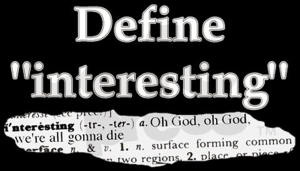The Battle Between Populist Sanders and Establishment Clinton Is as Old as the Country Itself
What the political battles of the late 18th century can teach us about people power.
By Thom Hartmann /
AlterNet
February 8, 2016
Right now, at both ends of our political spectrum, there is a battle being waged between We, The People, and the rich and powerful, aka "The Establishment." And, while there is a debate to be had about who does or does not represent each category right now, the battle between the people and power is as old as our republic.
One of the early famous “establishment” debates took place between Thomas Jefferson, who believed We, The People should control our own destiny, and John Adams' Federalists, who believed that the “rabble” could not be trusted to govern ourselves. Much like the establishment debate today, our founders disagreed over banks, debt, and corporate regulations. (For wonks of that era, I wrote part of a book about this, titled The American Revolution of 1800, co-written by Dan Sisson.)
That debate shaped our nation for the next two centuries. And, the outcome is reflected in the Bill of Rights we still hold dear today.
After the Revolutionary War was over and the Constitution was being worked out and presented to the states for ratification, Thomas Jefferson (then living in Paris as our envoy to France) turned his attention to what he felt was a terrible inadequacy in the new Constitution: it didn’t explicitly stipulate the natural rights of the new nation’s citizens, it allowed the army to continue to exist during times of peace, and it didn’t protect against the rise of commercial monopolies like the East India Company.
On Dec. 20, 1787, Jefferson wrote to James Madison about his concerns regarding the Constitution. He said bluntly that it was deficient in several areas:
I will now tell you what I do not like. First, the omission of a bill of rights, providing clearly, and without the aid of sophism, for freedom of religion, freedom of the press, protection against standing armies, restriction of monopolies, the eternal and unremitting force of the habeas corpus laws, and trials by jury in all matters of fact triable by the laws of the land, and not by the laws of nations.
Such a bill protecting natural persons from out-of-control governments or commercial monopolies shouldn’t be limited to America, Jefferson believed. “Let me add,” he summarized, “that a bill of rights is what the people are entitled to against every government on earth, general or particular; and what no just government should refuse, or rest on inference.”
In 1788 Jefferson wrote about his concerns to several people. In a letter to Alexander Donald, on February 7, he defined the items that should be in a bill of rights. “By a declaration of rights, I mean one which shall stipulate freedom of religion, freedom of the press, freedom of commerce against monopolies, trial by juries in all cases, no suspensions of the habeas corpus, no standing armies. These are fetters against doing evil, which no honest government should decline.”
Jefferson kept pushing for a law, written into the Constitution as an amendment, which would prevent companies from growing so large that they could dominate entire industries or have the power to influence the people’s government.
On Feb. 12, 1788, he wrote to Mr. Dumas about his pleasure that the U.S. Constitution was about to be ratified, but he also expressed his concerns about what was missing from the Constitution. He was pushing hard for his own state to reject the Constitution if it didn’t protect people from the dangers he foresaw:
With respect to the new Government, nine or ten States will probably have accepted by the end of this month. The others may oppose it. Virginia, I think, will be of this number. Besides other objections of less moment, she [Virginia] will insist on annexing a bill of rights to the new Constitution, i.e. a bill wherein the Government shall declare that, 1. Religion shall be free; 2. Printing presses free; 3. Trials by jury preserved in all cases; 4. No monopolies in commerce; 5. No standing army. Upon receiving this bill of rights, she will probably depart from her other objections; and this bill is so much to the interest of all the States, that I presume they will offer it, and thus our Constitution be amended, and our Union closed by the end of the present year.
By midsummer of 1788, things were moving along, and Jefferson was helping his close friend James Madison write the Bill of Rights. On the last day of July, he wrote to Madison:
I sincerely rejoice at the acceptance of our new constitution by nine States. It is a good canvass, on which some strokes only want retouching. What these are, I think are sufficiently manifested by the general voice from north to south, which calls for a bill of rights. It seems pretty generally understood, that this should go to juries, habeas corpus, standing armies, printing, religion, and monopolies.
The following year, on March 13, he wrote to Francis Hopkinson about continuing objection to monopolies:
You say that I have been dished up to you as an anti-federalist, and ask me if it be just. My opinion was never worthy enough of notice to merit citing; but since you ask it, I will tell it to you. I am not a federalist....What I disapproved from the first moment also, was the want of a bill of rights, to guard liberty against the legislative as well as the executive branches of the government; that is to say, to secure freedom in religion, freedom of the press, freedom from monopolies, freedom from unlawful imprisonment, freedom from a permanent military, and a trial by jury, in all cases determinable by the laws of the land.
All of Jefferson’s wishes, except two, would soon come true. But not all of his views were shared universally.
(continued in next post)
I really think that much of this country is on the ropes, hence the trump phenomenon






 !
!













 !
!